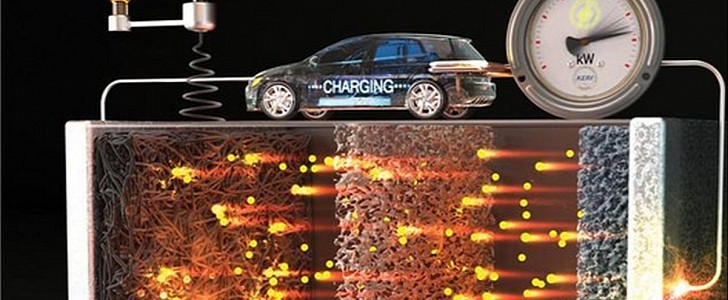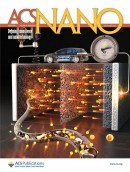Lithium-metal batteries promise to achieve high energy densities by replacing the graphite anode with one made out of pure lithium metal. The biggest problem is dendrite formation, which makes the battery very short-lived and outright dangerous. Scientists in South Korea think they’ve found a solution.
South Korea is home to some of the most successful Li-ion battery companies, supplying carmakers worldwide. It’s no wonder that Li-Ion battery research is high on the list of local universities. Scientists from the Korea Electrotechnology Research Institute (KERI) have developed a new battery design offering a very high energy density and increased durability. The new battery uses a lithium-metal anode, a promising technology with a very big problem: dendrite formation.
Lithium metal anodes have a theoretical energy capacity 10 times higher than graphite typically used in Li-ion batteries today. The only problem is that the lithium-metal anodes tend to develop a tree-like structure on their surface as the battery charges and discharges. The protrusions can break through isolator layers, causing a short circuit and even a fire. Right now, scientists around the world focus their work on solving this problem to make Li-metal batteries commercially viable.
We’ve recently seen a very interesting solution to this problem from a team at Harvard. In that case, the dendrites were constrained within a sandwich structure. The scientists in Korea propose a new approach with a lithium-confinable porous carbon structure featuring a hollow core. This is covered in gold nanoparticles with lithium affinity, which controls the lithium deposition inside the core. Basically, the anode is engineered to control the dendrites’ growth direction, keeping them from protruding through the separator layers.
The experimental cells used in the research retained 82.5% of their capacity after over 500 cycles at high-current density. The number doesn’t seem very high, but current Li-metal batteries can barely make it after 50 cycles. The result led the team to believe that a high-capacity battery will not only have a very long life but could also recharge very fast. That, of course, after the team solves another problem: developing a compatible electrolyte.
Lithium metal anodes have a theoretical energy capacity 10 times higher than graphite typically used in Li-ion batteries today. The only problem is that the lithium-metal anodes tend to develop a tree-like structure on their surface as the battery charges and discharges. The protrusions can break through isolator layers, causing a short circuit and even a fire. Right now, scientists around the world focus their work on solving this problem to make Li-metal batteries commercially viable.
We’ve recently seen a very interesting solution to this problem from a team at Harvard. In that case, the dendrites were constrained within a sandwich structure. The scientists in Korea propose a new approach with a lithium-confinable porous carbon structure featuring a hollow core. This is covered in gold nanoparticles with lithium affinity, which controls the lithium deposition inside the core. Basically, the anode is engineered to control the dendrites’ growth direction, keeping them from protruding through the separator layers.
The experimental cells used in the research retained 82.5% of their capacity after over 500 cycles at high-current density. The number doesn’t seem very high, but current Li-metal batteries can barely make it after 50 cycles. The result led the team to believe that a high-capacity battery will not only have a very long life but could also recharge very fast. That, of course, after the team solves another problem: developing a compatible electrolyte.





